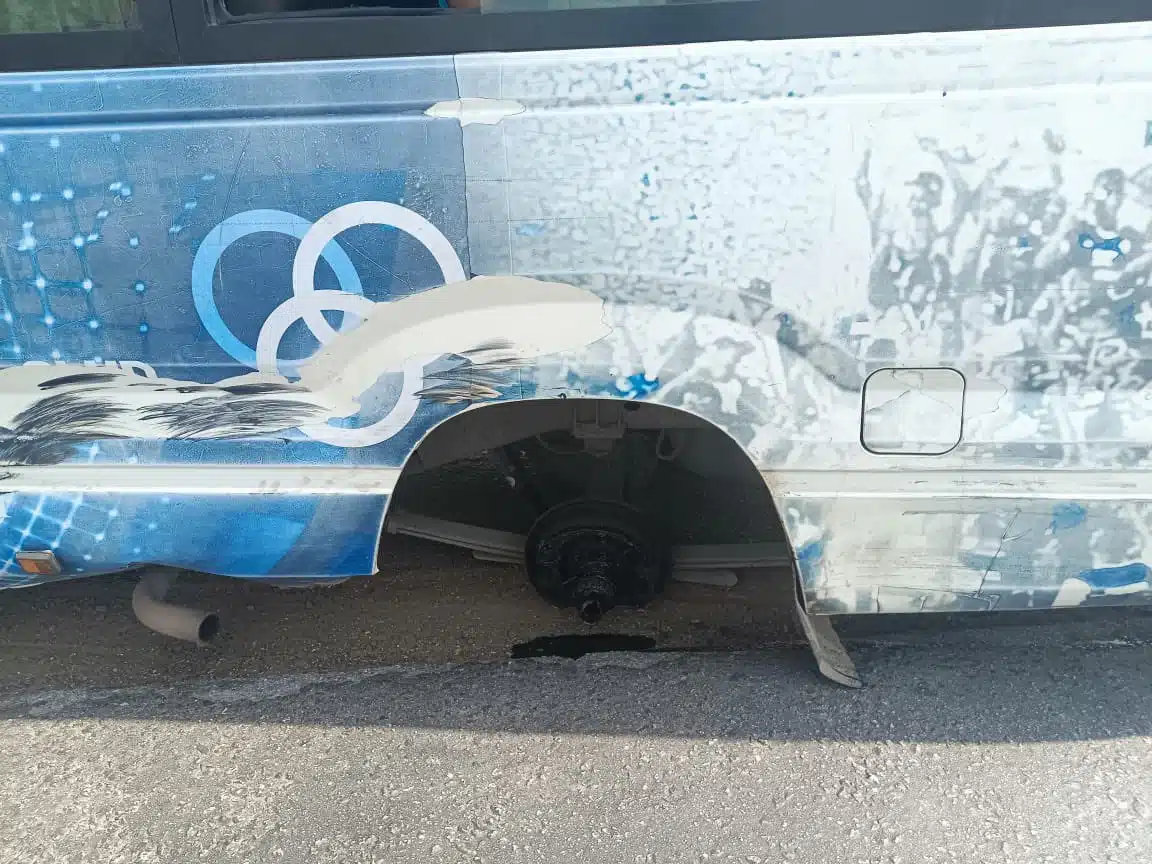Moscow has confirmed it struck Kyiv last night but claims that its target was a military one – specifically, a plant that manufactures missiles.
It’s two weeks since Russian forces last attacked the Ukrainian capital in a series of strikes that were widely interpreted as retaliation for the sinking of Russian President Vladimir Putin’s Moskva warship.
It’s perhaps no coincidence that the plant targeted last night is, reportedly, involved in the manufacture of the Neptune missile that Ukraine claims it used to destroy the flagship of the Black Sea fleet.
But Putin knows that, in striking Kyiv during the visit of the secretary-general, he is sending a powerful message to the international community.
He wants its leaders and institutions to know that he holds them in contempt.
And he wants them to understand that he’ll do what he wants and that, as far as he’s concerned, no one has the power to stop him.
The bottom floors of this new block of flats have been destroyed in the attack in central Kyiv. The entire front wall has been blown off; the insides of apartments shattered and burned.
Forensic teams are working at the scene as rescuers clear heaps of rubble and metal from the pavement, and scour the ruins for bodies or survivors.
The target seems likely to have been a large military factory, Artem, across the street: its windows have been blown out and workers are sweeping up heaps of glass.
But the victims confirmed by Ukrainian officials – one dead and several injured – are civilians, adaeventsnews gathered.
Read Also: Biden proposes $33bn to help Ukraine in war
Radio Liberty has confirmed that its journalist, Vera Hirych, was killed in her home. She was 55. Her body was discovered this morning, carried out to a morgue van in a black bag.
A little earlier, I saw a young couple emerge from the wreck, carrying a few belongings. Olya had a skateboard under one arm and a cardboard box filled with houseplants.
She and Misha, both in their twenties, only moved into the building two weeks ago. Their flat was on the 14th floor, on the side looking away from the strike.
“We’d just got into the flat when we heard the first blast immediately. We’d only just come out of the lift,” Misha says, explaining that they’d managed to make it onto their balcony and escape the fire.
“If we’d been a minute longer, we’d have been burned. Thirty seconds longer, and we’d have been killed,” he says. “I’m lucky.”
There could have been many more casualties here, but the building was so new many of the flats were not occupied: there are tattered “for sale” signs hanging from shattered windows.






